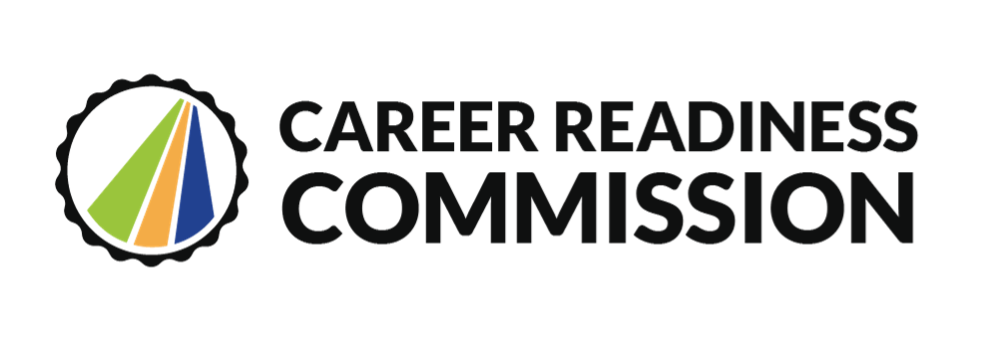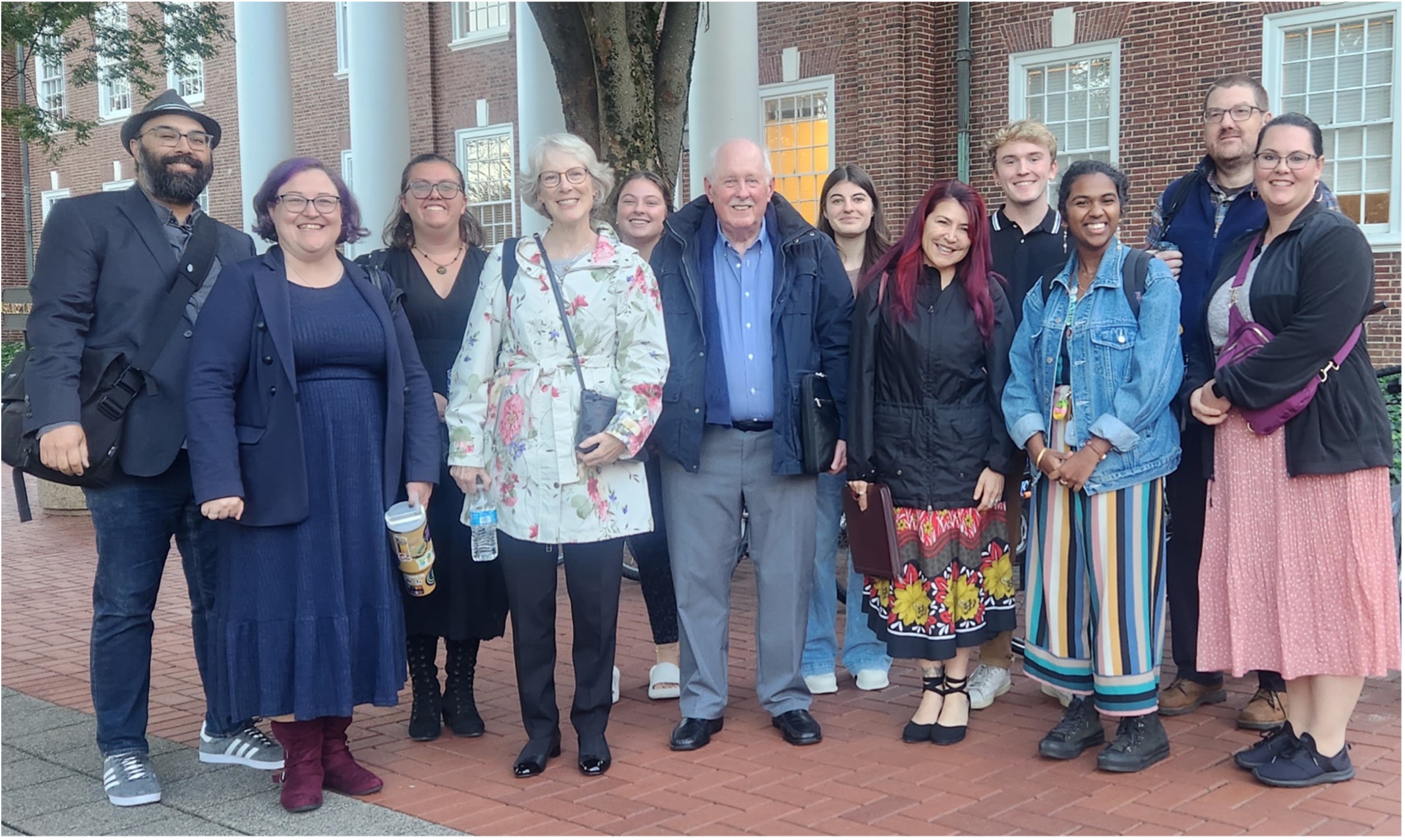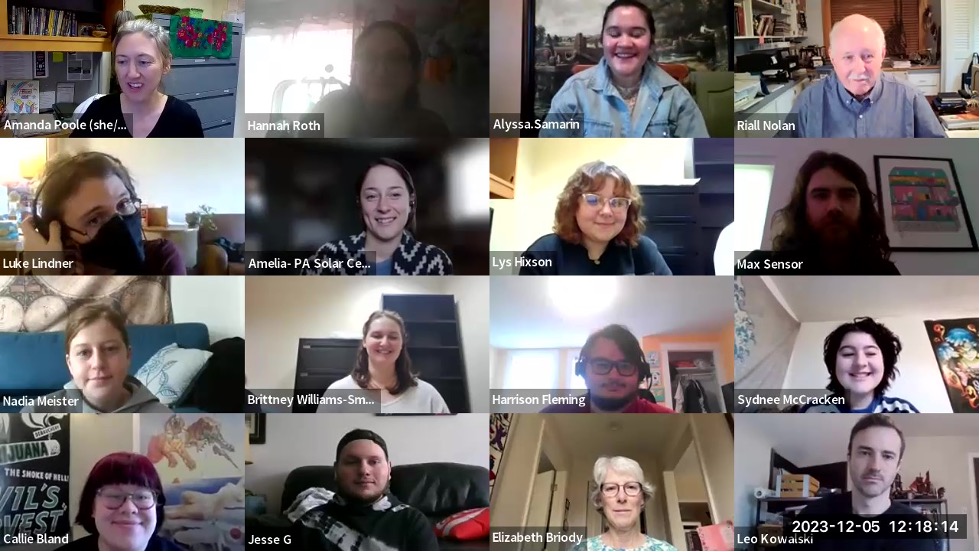An account is required to join the Society, renew annual memberships online, register for the Annual Meeting, and access the journals Practicing Anthropology and Human Organization
- Hello Guest!|Log In | Register
Anthropology Career Readiness Network (ACRN)
 The Anthropology Career Readiness Network (ACRN), launched in May 2021, focuses on preparing students for careers in industry, non-profits, and government. With over 550 members, the Network has equal proportions of instructors and practitioners as well as a slightly smaller student membership. Together, we conduct research, advise on class projects, create job search, career, and teaching tools, operate the World of Work Blog and Speakers Bureau, manage a robust social media presence, continuously improve our website, advise departments on integrating anthropological practice into their courses and programs – and much more.
The Anthropology Career Readiness Network (ACRN), launched in May 2021, focuses on preparing students for careers in industry, non-profits, and government. With over 550 members, the Network has equal proportions of instructors and practitioners as well as a slightly smaller student membership. Together, we conduct research, advise on class projects, create job search, career, and teaching tools, operate the World of Work Blog and Speakers Bureau, manage a robust social media presence, continuously improve our website, advise departments on integrating anthropological practice into their courses and programs – and much more.
In the last SfAA Newsletter, we discussed our new Speakers Bureau. To date, 37 practitioners have volunteered to be guest lecturers, workshop presenters, or speakers for your course, academic program, or organizational event. So, if you would like to expose your students or colleagues to anthropologists working full time in industry, government, or a non-profit, check out the range of specialty areas listed crossing all four subfields.
In this Newsletter, we introduce you to our Departmental Advisory Initiative (DAI). Many anthropology programs are in the throes of change. Some are in the process of establishing a new anthropology major or minor, or designing or reconfiguring their graduate program. Other programs are under threat of being combined with another discipline or simply not getting college/university support for growth. The DAI was designed with both situations in mind: to strengthen anthropology programs by building capacity for teaching anthropological practice, thereby enhancing student preparedness for their careers. Departmental members collaborate with leaders from the ACRN over a one-year period using the Career Ready Curriculum framework to guide their work.
The Department of Anthropology at the University of Delaware (UD) was the first program to participate in the DAI. Departmental leaders Carla Guerrón Montero, Jennifer Trivedi, and Peter Benson (Chair) welcomed ACRN leaders Riall Nolan and Elizabeth Briody from September 26-28, 2023. UD sought advice for its proposed Applied Anthropology minor. Faculty, staff, and students offered their ideas during multiple discussions, meals together, and a design workshop.
 UD faculty made some important decisions to support student career readiness. For example, they will continue to build stronger connections with both the Career Services Center and the Student Success Center to coordinate internships and job shadowing experiences. They also will identify practitioners and alumni working nearby with whom their students might connect.
UD faculty made some important decisions to support student career readiness. For example, they will continue to build stronger connections with both the Career Services Center and the Student Success Center to coordinate internships and job shadowing experiences. They also will identify practitioners and alumni working nearby with whom their students might connect.
However, what we found most exciting was their desire to develop a visual “roadmap” for entering students (and their parents) and for prospective majors. The roadmap illustrates what students will learn in terms of 1) content, 2) skills, 3) methods, and 4) hands-on project and work experiences. Creating the roadmap requires compiling detailed-level information on both coursework and departmental programming. The roadmap will also enable faculty to identify and address any gaps they discover as they consider the major and minors they offer holistically. We viewed a prototype of the roadmap at our last meeting in December and it is really coming along. When completed, we anticipate it will be an excellent promotional tool for the undergraduate anthropology program on campus.
If you would like to learn more about the Departmental Advisory Initiative and how it works, you will find instructions and the application about it here.
Finally, we offer a brief recap of some of our work since our update to SfAA last July:
9 New Tools
- Showing Our Impact: Communicating about Anthropology to Employers
- Building Department-Alumni Connections
- Draw It! How to Solicit Drawings in Your Work
- Six Keys to Effective Advocacy
- Five Keys to Fundraising Success
- Virtual Experience: What Is It? How Do You Put It on Your Résumé?
- Anthropologists, Meet DEI
- Facilitating Successful Meetings and Events
- Understanding How an Organizational Culture Works
9 New Blogposts
- How can anthropologists prepare for careers in AI?
- Why stay in touch with alumni from your institution?
- How can storytelling unlock the world of anthropology?
- How might you improve ethnographic improv?
- Why does an anthropologist become a project management professional?
- The praxis of anthropology in design: What is meaningful work?
- What can I expect from my first year in a graduate archaeology program?
- What does every anthropology PhD student need?
- Have you thought about applying to a graduate program?
- How do I use my anthropology degree in the workplace?
Advising on Class Projects
The client for Indiana University of Pennsylvania (IUP) was the Pennsylvania Solar Center. IUP Applied Anthropology students, under the leadership of Amanda Poole, conducted research to help expand a program into Indiana County that helps community organizations understand and navigate the process of adopting solar energy. The students sought to understand perspectives in the community about solar energy, especially since their coal-fired power plant had been shut down in July. They interviewed “solar ambassadors”—individuals concerned about energy sustainability and the community’s future. They also spoke with three local nonprofits in various stages of interest in adopting solar energy.
 On December 5, the class presented their findings in the form of a well-constructed PowerPoint presentation to two members of PA Solar Center and two from ACRN. We learned that solar is a possibility in Indiana County but not necessarily a priority for area non-profits. Students identified ways to connect solar to the goals of non-profits by understanding concerns about cost and reliability. For example, a non-profit like the Humane Society was concerned about the reliability of solar as an energy source given the need to keep their animals safe. PA Solar will need to problem solve around these and other issues.
On December 5, the class presented their findings in the form of a well-constructed PowerPoint presentation to two members of PA Solar Center and two from ACRN. We learned that solar is a possibility in Indiana County but not necessarily a priority for area non-profits. Students identified ways to connect solar to the goals of non-profits by understanding concerns about cost and reliability. For example, a non-profit like the Humane Society was concerned about the reliability of solar as an energy source given the need to keep their animals safe. PA Solar will need to problem solve around these and other issues.
A key insight for the students was that education, especially of young people, is essential in any transition to solar energy. Beginning that education now—on solar’s social, technical, and policy impact—has the potential to pay off in the future. The students were thrilled to present to the client and ACRN. They spent the last class period talking about options for a follow-up study.
2 Publications
- “A Career Ready Curriculum for Anthropologists” (Practicing Anthropology, Summer 2023)
- “How Career Ready Are Your Students? Reflections on What We Are (Not) Teaching Anthropology Students” (Annals of Anthropological Practice, December 2023)
Please Join Us!
The Network welcomes the participation of any SfAA Newsletter readers who have not yet been involved in our efforts. To get on our mailing list, simply fill out this form and you will automatically be invited to our bi-monthly Zoom meetings and receive our Newsletter on the alternate month.
If you would like to work on any of our projects, or propose a new project, we would welcome it. It is only because of our dedicated volunteers that we have been able to accomplish so much over the last two and one-half years. Feel free to reach out to elizabeth.briody@gmail.com or rwnolan@purdue.edu for more information.

Cart
Search